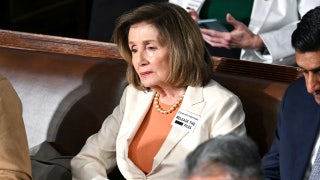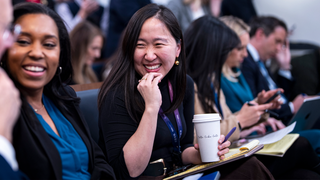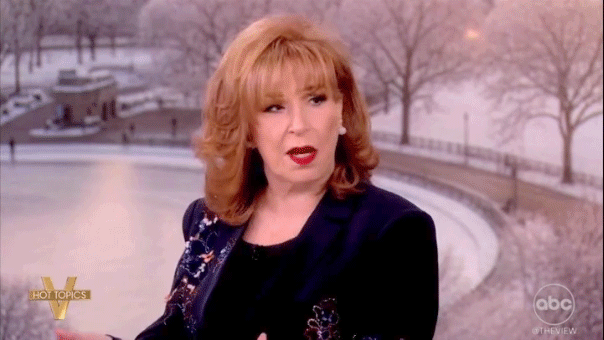Thousands of mourners sing during the funeral mass for Pope Benedict
Thousands of mourners attended the funeral mass for former Pope Benedict XVI in St. Peter's Square Thursday.
A Nicaraguan Catholic bishop and outspoken critic of the country’s authoritarian regime was arrested this summer as part of a crackdown on the country’s religious community, which was considered to be the last civil society institution independent of government control, but Pope Francis and the Vatican have been largely silent on the matter.
The government, under the rule of President Daniel Ortega and his wife and Vice-President, Rosario Murillo, has detained opponents who pose a potential risk to their authoritarian control, including Rolando Álvarez, the Bishop of Matagalpa in central Nicaragua.
On Dec. 13, he was formally charged with crimes of conspiracy and "propagation of false news" with a hearing scheduled for Jan. 10, according to the government’s media site, the Associated Press reported.
Alvarez remains under house arrest, where he has been detained since Aug. 19 after he was publicly arrested and led out of his rectory at gunpoint in the early morning hours by the Nicaraguan National Police. He has been a prominent religious and political voice in Nicaragua since 2018, when protests broke out against Ortega’s government, which led to a crackdown on opponents.
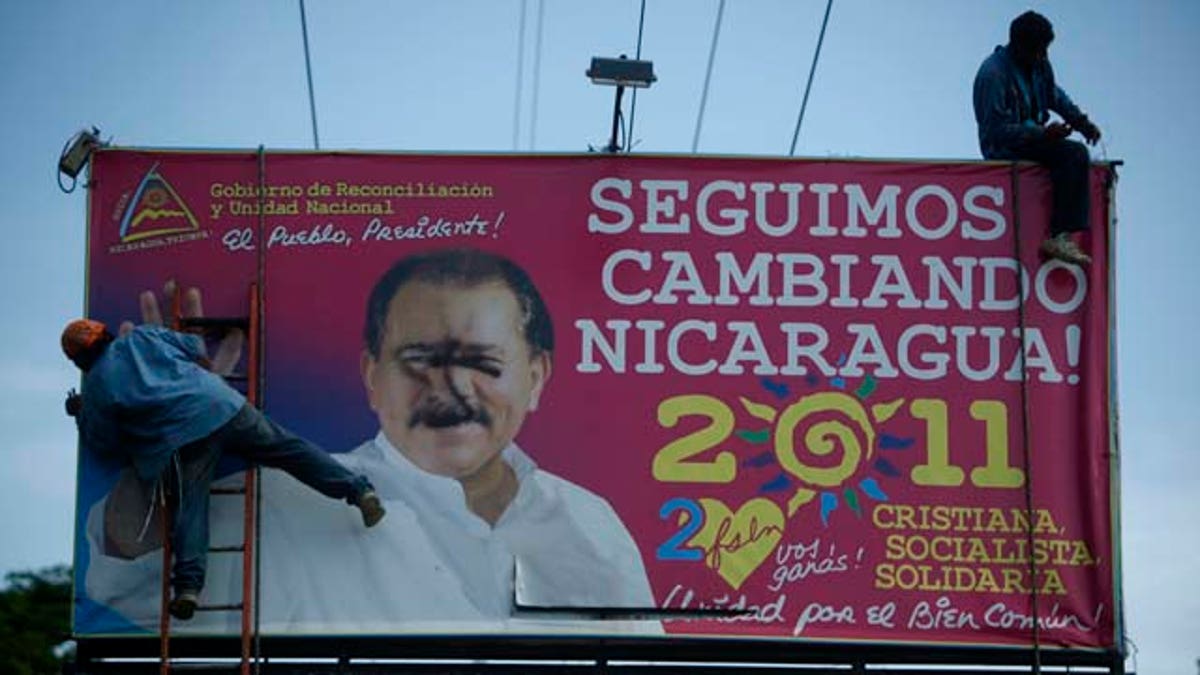
Workers remove a billboard with political propaganda supporting Nicaragua's current President Daniel Ortega that reads in Spanish "We keep changing Nicaragua: Christian, socialist, with solidarity" in Managua, Nicaragua, Thursday, Aug. 18, 2011. (AP Photo/Esteban Felix) ((AP Photo/Esteban Felix))
The Nicaraguan regime has unknowingly made Álvarez even more famous than he already was by publicly arresting him, where he is shown in photos forced to his knees, in his robes, with army men behind him, pointing machine guns at his head, said Ryan C. Berg of the Center for Strategic & International Studies.
"It's just such an evocative image that it's one that's going to stick in a lot of people's minds," Berg told Fox News Digital. "If you see the image, you can't unsee that kind of thing and so, the regime has unwittingly made him into even more of a celebrity than he was."
"His cause is now an international one, whereas before it might have been a country-wide or a regional one, because those images are so powerful."
By arresting Álvarez, the regime is sending a message, since he is widely respected in the Catholic country, The Heritage Foundation's Mateo Haydar said.
"Broadly speaking, the Catholic Church was seen as really the only space that many Nicaraguans had in the country to hear a different perspective and have a degree of freedom of expression and of worship," Haydar told Fox News Digital.
"That’s what the regime is attacking directly, they're not just arresting one bishop," he added. "They're going after more broadly members of the clergy, and they're actually cracking down on open acts of faith in the public square."
On the same night the bishop was arrested, other priests, seminarians and a layman were taken into custody and detained in the El Chipote prison, which is known for torturing opponents of the Ortega dictatorship, the Catholic News Agency reported. The Nicaraguan police took Álvarez to Managua, the country’s capital.
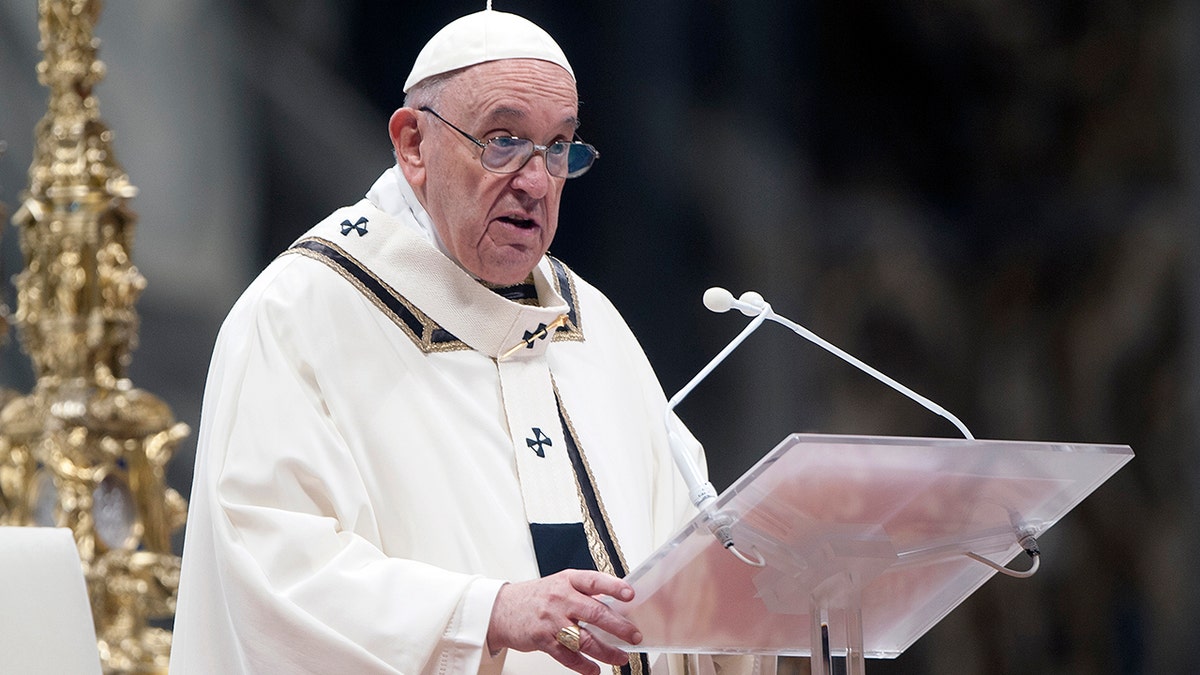
Pope Francis holds his homily during a Mass on the Solemnity of the Epiphany at St. Peter's Basilica on Jan. 6, 2022, in Vatican City, Vatican.(AleVatican Pool/Getty Images) (AleVatican Pool/Getty Images)
Earlier this year the regime expelled religious nuns from the Sisters of Charity, which was founded by Mother Teresa to take care of the sick and poor and the papal nuncio, the Vatican’s top representative in the country. Undercover security agents and pro-government paramilitaries have also been monitoring Catholic Mass services and taken photos of attendees, several priests told The New York Times.
"All spaces of civil society that present some kind of threat to them, they have decided to crack down and go after," Haydar said.
"It's a message sent to the clergy to say that they continue to operate in the country, then they have to fall in line," Haydar said. "That in itself is a very dangerous step for the church in Nicaragua."
The Ortega government also arrested seven potential presidential candidates leading up to the 2021 election, which secured Ortega’s fourth consecutive term, but has largely been deemed a "sham" election by the U.S. and European governments.
Ortega has repeatedly blamed the pro-democracy protests on foreign nations, who he claims have the backing of the Catholic Church.
In the days before the 2021 election, he called Nicaragua’s bishops "terrorists" and accused them of drafting a political proposal on behalf "of the terrorists, at the service of the Yankees," the AP reported.
On Aug. 21 following Álvarez's arrest, Pope Francis said he was "closely following, with concern and sorrow, the situation that has developed in Nicaragua, involving people and institutions," but he did not explicitly mention the arrests targeting Catholic clergy.
"I would like to express my conviction and my hope that, through an open and sincere dialogue, the basis for a respectful and peaceful coexistence might still be found," he added. "Let us ask the Lord, through the intercession of the Purísima, to inspire this concrete will in everyone’s heart."
Just over a month later, Ortega attacked the pope, calling him a "holy tyrant" and asked, "With what authority do you speak to me about democracy? How many votes did the bishop have from the population to be appointed bishop?" the Catholic News Agency (CNA) reported.
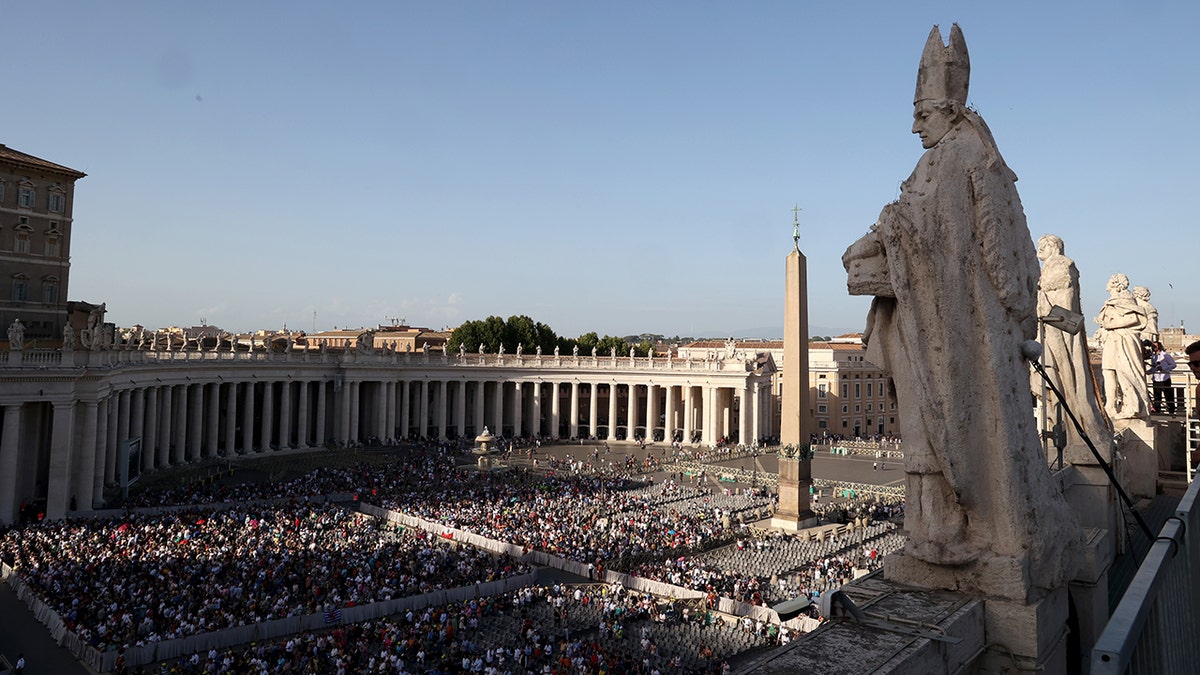
VATICAN CITY, VATICAN - JUNE 25: A view of St. Peter's Square during the 10th World Meeting of Families closing Mass on June 25, 2022 in Vatican City, Vatican. (Photo by Franco Origlia/Getty Images) (Photo by Franco Origlia/Getty Images)
"If they’re going to be democratic, they must begin by electing the pope, the cardinals, the bishops, with the vote of the population, with the votes of Catholics," Ortega said during the public event on Sept. 28. "Let the population elect them and not all of them imposed [on the people], it’s a dictatorship, the perfect dictatorship. It’s a tyranny, the perfect tyranny."
A year earlier, in fall 2021, he called Catholic bishops "terrorists," "demons in cassocks," and men in "satanic cassocks," the CNA reported.
On Dec. 19, less than a week after Álvarez was accused of "conspiracy to undermine national security and sovereignty" and "spreading fake news," Ortega attacked the Catholic Church in Nicaragua, stating its leaders called for "bloodshed" during the 2018 protests and that he personally "never had respect for the bishops."
Nicaragua is a deeply religious country where many citizens attend church on a regular basis, Berg said. As an institution, the Catholic Church has a very positive image, unlike the regime, he added.
"Marry those two things together, and you can see why a paranoid dictatorial regime is going after an important alternative center of social and political organization like the church, which can influence people's thinking and convince them to use their own conscience, to think differently or to not listen to the propaganda," Berg said.
Pope Francis said in September that the Vatican was in contact with the Nicaraguan government about its crackdown on the Catholic Church, but he made it clear that the Vatican did not want to break off communication with the regime or escalate the conflict due to public criticism, the AP reported.
MORMON CHURCH COMES OUT IN SUPPORT OF FEDERAL LAW PROTECTING SAME-SEX MARRIAGE
"That doesn’t mean we approve of everything the government is doing, or disapprove of it. There is dialogue," Francis said. "When there’s dialogue it means we must resolve problems. In this moment, there are problems."
Álvarez will likely be hit with trumped-up charges, which has been seen in similar cases involving political prisoners, Haydar and Berg both told Fox News Digital.

Pope Francis delivers the Urbi et Orbi (to the city and to the world) blessing at the end of the Easter Sunday Mass in St. Peter's Square at the Vatican, Sunday, April 5, 2015. (AP Photo/Osservatore Romano, Pool)
"What needs to be understood about this is that this isn't an isolated incident simply because he's an outspoken critic of the regime," Haydar said. "That is the case, so it's convenient for them to arrest him and to use him as a symbol, but this is more broadly a full-out war that's being waged on the Catholic Church in Nicaragua and on civil society in Nicaragua."
The Vatican has been criticized both inside and outside the country for staying largely mum on the persecution of the country’s Catholic community and Álvarez’s arrest.
"What was surprising and shocking for many Nicaraguans and many Catholics around the world has been the silence of the pope," Haydar said. "The kind of tepid response from the church as a whole, as the regime really tries to isolate Nicaraguan Catholics from the rest of the world."
Catholics should want a pope who understands the magnitude of his position and the impact he can have, but unfortunately that is not happening in this situation, Berg said.
"Pope Francis has chosen not to speak out very forcefully and hardly at all about Nicaragua, despite being the first pope from Latin America, which to me is unspeakable," he said.
CLICK HERE TO GET THE FOX NEWS APP
"That doesn't really seem to conform with the religion itself," he added. "There are members of Catholicism who are under systematic repression in Nicaragua and the pope is mum."






